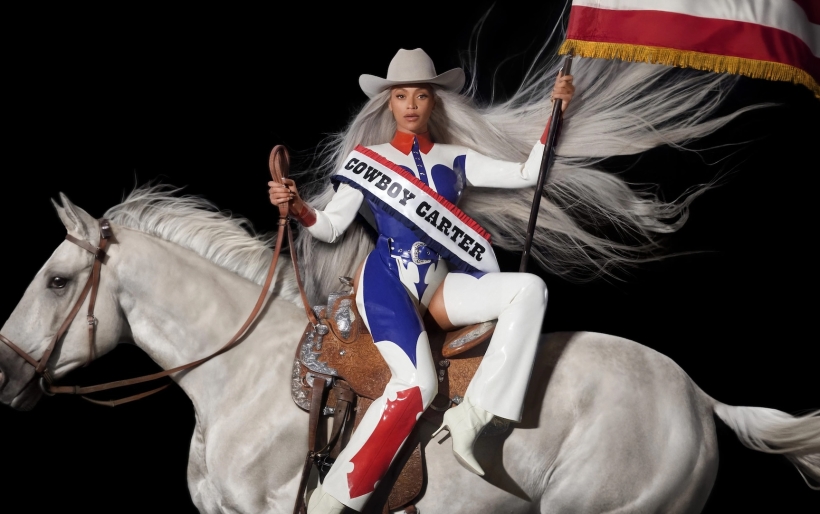Beyoncé‘s recent release, “Cowboy Carter,” not only showcases her musical prowess but also sparks vital conversation about the presence of Black musicians in country music. Beyoncé’s journey, as she shared on Instagram, sheds light on the challenges faced by Black artists in a genre historically dominated by white voices.
In her Instagram post on March 19, Beyoncé recalls her 2015 CMA Awards performance with The Chicks and the backlash it received from some country music fans:
“This album has been over five years in the making. It was born out of an experience that I had years ago where I did not feel welcomed…and it was very clear that I wasn’t. But, because of that experience, I did a deeper dive into the history of Country music and studied our rich musical archive. It feels good to see how music can unite so many people around the world, while also amplifying the voices of some of the people who have dedicated so much of their lives educating on our musical history.”
On “Cowboy Carter,” Beyonce uses her country album to elevate the conversation about what is country and what is not; about who should be included in the creation of country and who shouldn’t, about how country music fandom and the country music industry in America must be inclusive, welcoming, and accepting of the kaleidoscope of roots music, as well as the race and gender of those who creates it.
Beyonce made an Americana album
I would echo a post on X that I saw from Allison Russell in which she said: “Y’all do know Beyonce made an #americana record not a #country record, right?” Right?” While on many levels, the notion of genre is disappearing,“Americana” is a style of music that embraces many styles including roots, R&B, folk, bluegrass, blues, gospel, zydeco, country, alternative country, singer-songwriters, and yes, even hip-hop. Beyoncé’s album serves as a tribute to all of the often overlooked contributions of a diversity of Black musicians to country music’s development.
Beyonce’s new album has surfaced important conversations around Black artists in country and Americana, and we’re here for it! Some XPN listeners might recall these musicians’ names: Denitia, The Kentucky Gentlemen, Grace Givertz, Samantha Rise, Tylar Bryant and Frankie Staton. They were the participating musicians in our Black Opry Residency in 2023, a program that aimed to elevate independent Black performers rooted in Americana and Country music. Collaborating with artists like Rissi Palmer and Black Opry founder Holly G., we sought to address the lack of representation of Black musicians in Americana and country music.
Championing Black Americana and Country music
At XPN, we’ve long been champions of diverse musical styles, including Country and Americana. We’ve strived to broaden our community and amplify voices that have too often been marginalized in the music industry. Tanner Davenport, co-director of Black Opry with founder Holly G wrote in a recent essay:
“A common experience among Black country artists and fans is feeling unwelcome. Many of us were told that country music wasn’t meant for us. I think for a majority of us..With the release of “Cowboy Carter,” we find solidarity with Beyoncé, who’s been open about feeling unwelcome in the country music space. Our hope is that with so many eyes on Beyoncé and Black country artists, there will be greater appreciation for Black people’s history in country music and Black country artists across the board will be in higher demand.”
Cowboy Carter and projects like the Black Opry Residency remind us of the power of music to transcend boundaries and foster inclusivity. As Beyoncé and other Black country artists continue to challenge stereotypes and pave the way for greater representation, we’re committed to supporting their journey and amplifying their voices within our diverse musical community.
Connected to Cowboy Carter and avenues of exploring it, this week on the XPN Morning Show, Kristen Kurtis played a set celebrating the album by spotlight many of the artists who contributed — Rhiannon Giddens, Brittney Spencer, and more — as well as songs that were sampled and covered on the album. Listen to Cowboy Carter: Deconstructed below.
